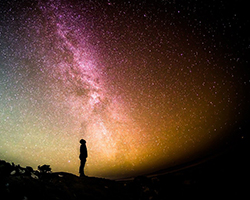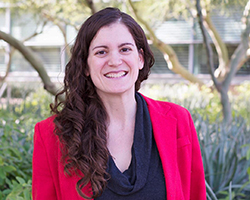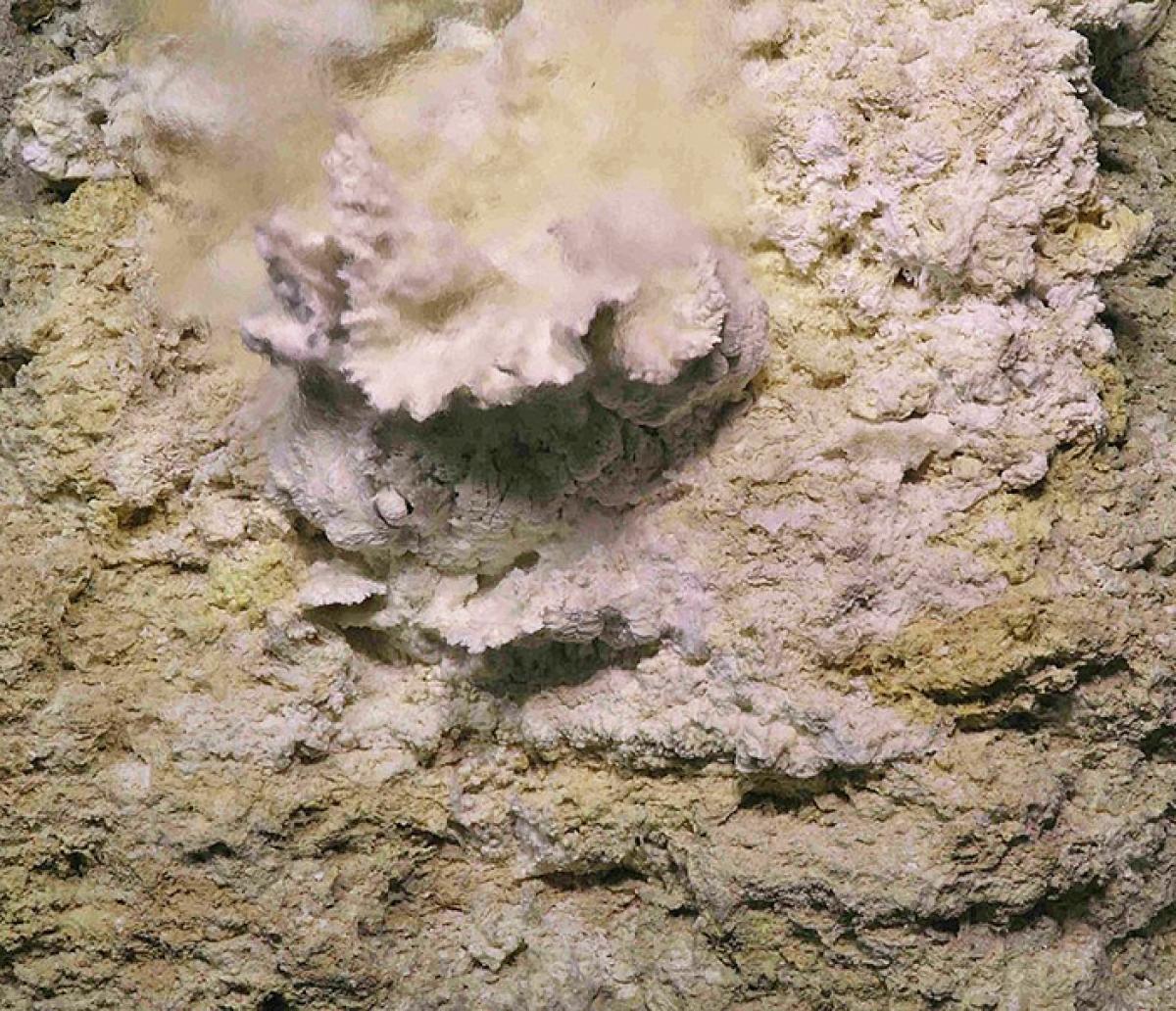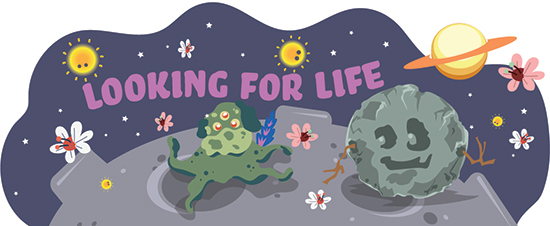
As a kid, Sara Walker painted all the time, brushing vibrant colors across a blank page, creating something new and beautiful and full of life. She has always loved being creative—when she was younger, she wanted to be an artist when she grew up. As Walker made her way through high school and college, she still loved being creative, but she learned how to apply her creativity to other fields.
After she went to college, she found herself drawn to physics. In particular she liked theoretical physics. Physics is field where math and equations are used to describe reality. Most people may not appreciate this as beautiful or creative. But Walker found the equations beautiful and she loved the possibility they could explain the rules of life. She delved into physics, using her creativity to explore this new world and its possibilities and questions.

In grad school Walker discovered a new field that brought together her love of creativity and her interest in physics: astrobiology. Astrobiology is the study of life on Earth as well as in space. Walker’s advisor introduced her to this field by involving her in the Origins of Life project. The Origins of Life project is focused on determining if life is abundant in the universe and how life started on Earth. When working on this project, Walker realized how much room for discovery there is in this field. That is what sold her on astrobiology; she wanted to make big discoveries.
Working as an Astrobiologist
Walker’s life path has been one of discovery and excitement, but there have been some challenges. Being a researcher can be very difficult. Researchers need to publish, run their research, and carve out their own area in the field. Being on the forefront of a new field makes it even more difficult. It can be harder to be published and get funding when a field is new.

Researchers submit papers to be published and grant applications to get funding for their projects. But papers may be rejected or need revisions, and grants are often rejected too. Getting papers and grants rejected can be tiring and disappointing. Rejection can also cause researchers to feel lonely because no one really talks about their rejections. One idea Walker had was for researchers to be honest and open about their rejections. It can be difficult for people starting out to envision their path to success when all they see are people with long lists of successes. They may not see all the rejections, failures, and perseverance needed to get to that level of success.
She suggested something called an “Anti-CV.” A CV (curriculum vitae) is like a resume for professors and people that publish and present a lot of research. An Anti-CV would include every rejection a researcher has had, showing a track record also of how they have overcome these hurdles. This would help show that everyone suffers rejection. Graduate students and recent graduates may find this a helpful form of encouragement in their work. Rejections and missed opportunities in their career do not mean that they won’t be successful.

Aside from trying to connect with her colleagues in these unique ways, Walker is also helping to train a new generation of researchers. Her students work on a wide variety of projects from artificial intelligence to the origins of life. Some even study human health. But all of the people in her lab have something in common—they work on different ways to understand life. Walker’s interests are broad and far reaching – which is reflected in the diversity of her students’ work. Together they form creative collaborations that keep them passionate about their work and keep them asking new questions.
Additional images via Wikimedia Commons. Hydrothermal vent image by Susan Lang, U. of SC. / NSF / ROV Jason / 2018 © Woods Hole Oceanographic Institution.
Read more about: Looking for Life
Bibliographic details:
- Article: Career Path for Sara Walker
- Author(s): Dr. Biology
- Publisher: Arizona State University School of Life Sciences Ask A Biologist
- Site name: ASU - Ask A Biologist
- Date published: 27 Sep, 2020
- Date accessed:
- Link: https://askabiologist.asu.edu/career-path-sara-walker
APA Style
Dr. Biology. (Sun, 09/27/2020 - 16:26). Career Path for Sara Walker. ASU - Ask A Biologist. Retrieved from https://askabiologist.asu.edu/career-path-sara-walker
Chicago Manual of Style
Dr. Biology. "Career Path for Sara Walker". ASU - Ask A Biologist. 27 Sep 2020. https://askabiologist.asu.edu/career-path-sara-walker
Dr. Biology. "Career Path for Sara Walker". ASU - Ask A Biologist. 27 Sep 2020. ASU - Ask A Biologist, Web. https://askabiologist.asu.edu/career-path-sara-walker
MLA 2017 Style

Be Part of
Ask A Biologist
By volunteering, or simply sending us feedback on the site. Scientists, teachers, writers, illustrators, and translators are all important to the program. If you are interested in helping with the website we have a Volunteers page to get the process started.

